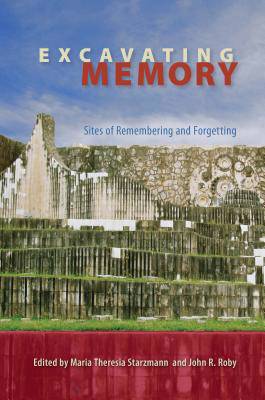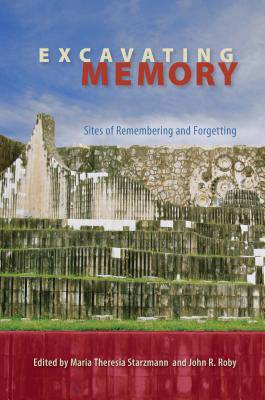
- Retrait gratuit dans votre magasin Club
- 7.000.000 titres dans notre catalogue
- Payer en toute sécurité
- Toujours un magasin près de chez vous
- Retrait gratuit dans votre magasin Club
- 7.000.0000 titres dans notre catalogue
- Payer en toute sécurité
- Toujours un magasin près de chez vous
Excavating Memory
Sites of Remembering and Forgetting
Description
In this compelling study, Maria Theresia Starzmann and John Roby bring together an international cast of experts who move beyond the traditional framework of the "constructed past" to look at not only how the past is remembered but also who remembers it. They convincingly argue that memory is a complex process, shaped by remembering and forgetting, inscription and erasure, presence and absence. Collective memory influences which stories are told over others, ultimately shaping narratives about identity, family, and culture.
This interdisciplinary volume--melding anthropology, archaeology, sociology, history, philosophy, literature, and archival studies--explores such diverse arenas as archaeological objects, human remains, colonial landscapes, public protests, national memorials, art installations, testimonies, and even digital space as places of memory. Examining important sites of memory, including the Victory Memorial to Soviet Army, Blair Mountain, Spanish penitentiaries, African shrines, and the U.S.-Mexico borderlands, the contributors highlight the myriad ways communities reinforce or reinterpret their pasts.
Spécifications
Parties prenantes
- Editeur:
Contenu
- Nombre de pages :
- 424
- Langue:
- Anglais
- Collection :
Caractéristiques
- EAN:
- 9780813061603
- Date de parution :
- 23-02-16
- Format:
- Livre relié
- Format numérique:
- Genaaid
- Dimensions :
- 156 mm x 234 mm
- Poids :
- 825 g

Les avis
Nous publions uniquement les avis qui respectent les conditions requises. Consultez nos conditions pour les avis.





